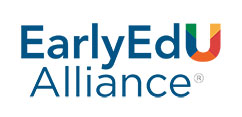California Transitional Kindergarten Case Study
California Transitional Kindergarten Case Study
Early Childhood Policy
Developed by the EarlyEdU Alliance at the University of Washington

“We have a cautionary tale and a hopeful model."
- Scott Moore, Executive Director, Kidango, Inc.
Abstract
California’s Transitional Kindergarten program illustrates the complexity of mixing politics and policy in the early childhood field. This case study incorporates perspectives from influential organizations and policymakers in early learning, such as district and trade association leaders, researchers, higher education experts, and Head Start association staff. The case study reveals the tension between mixed delivery services and public school-based pre-kindergarten (pre-k) programs and the interplay between state, district, and community priorities. It also shows the potential unintended consequences and implementation challenges of well-intentioned policies meant to expand access and address equity issues.
Use this Case study for Early Childhood Cases
Case Study Focus:
- History and context of California pre-K access and funding
- Pre-k delivery tensions: public schools vs. mixed delivery
- ECE workforce shortage and additional challenges to meet TK needs
Other Details
| Publication Date: | October, 2022 |
| Pages: | 22 |
| Setting: | United States |
| Language: | English |
